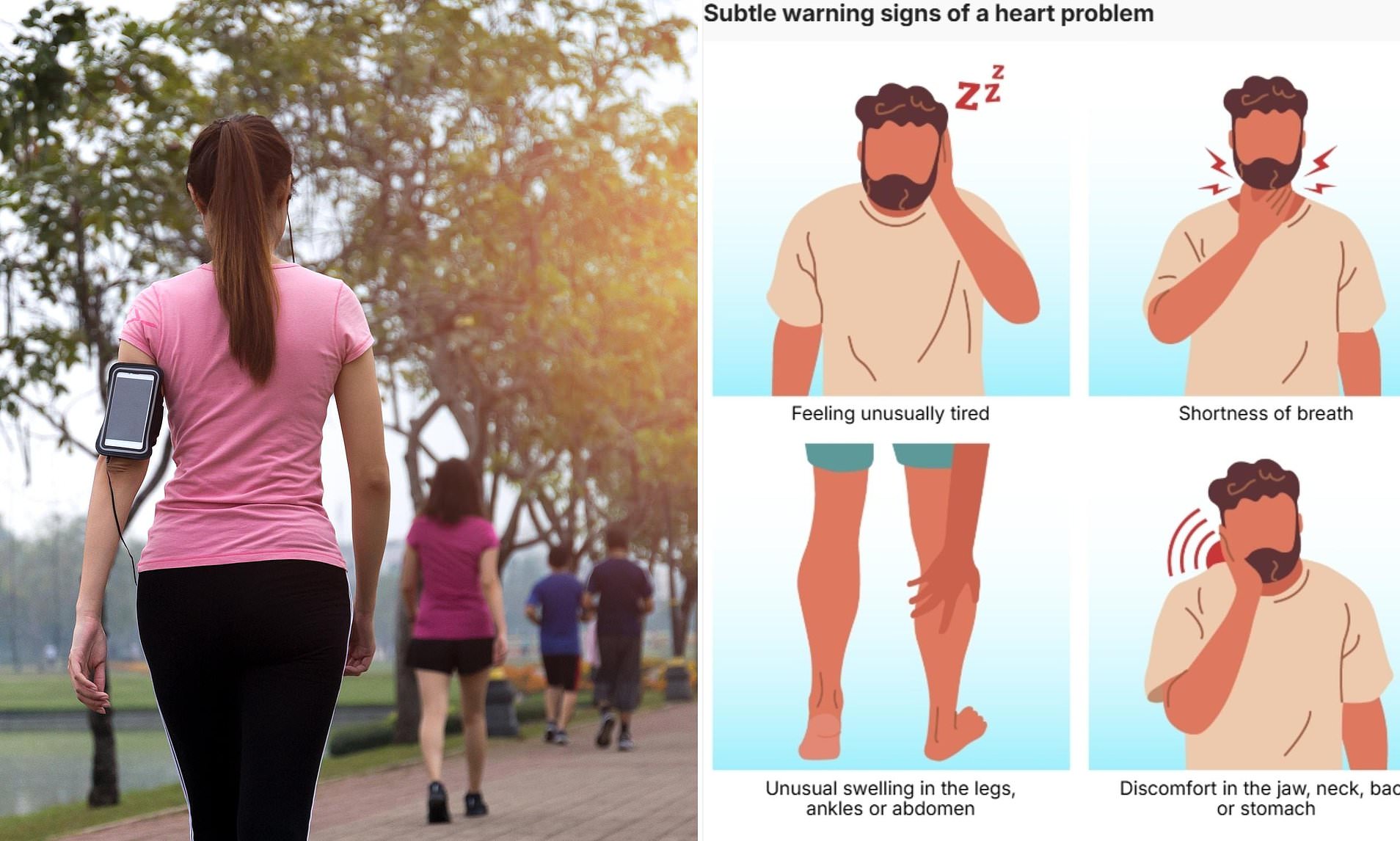Daily 'Fast Walk' Reveals Amazing Health Benefits

The Benefits of Brisk Walking for Heart Health
Walking is one of the most accessible forms of exercise, and recent research highlights how even a short, brisk walk can significantly improve heart health. A new study suggests that walking at a faster pace for just 15 minutes a day may be more beneficial than walking slowly for three hours, offering substantial health advantages.
The study, which involved over 79,850 adults from low-income areas in the United States, found that brisk walking had a greater impact on reducing the risk of death compared to slower walking, even when overall physical activity levels were considered. This finding emphasizes the importance of not only the amount of movement but also the intensity of the activity.
Experts argue that brisk walking is an effective form of exercise, particularly for individuals in communities with limited access to healthcare. It offers a simple, low-impact way to protect against heart disease and improve overall well-being. The results are especially relevant given the alarming data showing a rise in premature deaths from cardiovascular problems, including heart attacks and strokes, over the past decade.
In the UK alone, approximately 420 people of working age die each week due to heart disease, equating to around 21,975 annual deaths. These statistics underscore the urgent need for effective interventions to combat this growing public health issue.
Key Findings from the Study
The study analyzed data from the Southern Community Cohort Study between 2002 and 2009. Participants reported how much time they spent walking at different speeds, with slow walking including activities like walking at work or taking a leisurely stroll, while fast walking involved more dynamic movements such as climbing stairs or brisk walking.
Over nearly 17 years of follow-up, researchers observed that walking briskly for just 15 minutes a day reduced the risk of all-cause mortality by nearly 20%. The effect was most significant for cardiovascular disease, indicating that the benefits of brisk walking extend beyond general health to specific heart-related conditions.
Professor Wei Zeng, the lead investigator, explained that brisk walking improves the efficiency of the heart and helps reduce obesity. This type of exercise has also been linked to increased VO2 max, a measure of the body’s ability to process oxygen during physical activity. A higher VO2 max is associated with better fitness and a lower risk of cardiovascular disease.
Recommendations for Public Health
Based on their findings, the researchers urge health officials to promote brisk walking as a practical and accessible form of exercise for all communities. They emphasize the need to address barriers such as safety concerns and limited access to healthcare, especially in underserved areas.
Public health campaigns and community programs should highlight the importance of incorporating more intense physical activity into daily routines. Experts recommend that individuals strive to include brisk walking or other aerobic exercises in their schedules to improve long-term health outcomes.
Despite these promising results, the study had some limitations. For example, physical activity data was only collected at the beginning of the study, so changes in activity levels over time could not be fully accounted for. Additionally, daily walking levels were self-reported, which may introduce some inaccuracies.
The Broader Impact of Physical Inactivity
Sedentary lifestyles are a major contributor to health issues worldwide. In the UK, many people spend long hours sitting at desks, commuting, and relaxing at home, leading to significant health risks. Studies suggest that such inactivity may contribute to thousands of deaths annually.
Globally, physical inactivity is estimated to cause around 2 million deaths per year, making it one of the top causes of death and disability. It is closely linked to various health problems, including cardiovascular disease, obesity, type 2 diabetes, and certain cancers.
While advancements in medical treatments have helped reduce heart disease rates among those under 75, other factors such as delayed ambulance response times and long waiting periods for tests and treatment continue to pose challenges. Addressing these issues alongside promoting active lifestyles is crucial for improving public health outcomes.
By focusing on the quality of movement rather than just the quantity, individuals can take meaningful steps toward better health. Brisk walking, as this study shows, is a powerful tool that can make a real difference in preventing heart disease and extending life expectancy.
Post a Comment for "Daily 'Fast Walk' Reveals Amazing Health Benefits"
Post a Comment